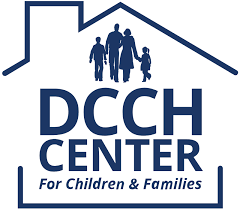By Trisha Scheyer
NKyTribune reporter
Those who might be thinking of skipping the November 5 election might want to think again. Not only is this election critical in choosing who will lead the country for the next four years, other important issues will also be on the ballot. In Kentucky, the popular vote will determine how public school tax money will be allocated.

The majority in the legislative session voted to put Amendment 2, known as the Voucher Amendment, on the ballot in November. If passed, it will allow Kentucky public school tax funding to be used for non-public schools.
This hot-button issue has galvanized opponents of the Amendment 2 measure to band together to defeat it. A statewide group, Protect Our Schools KY, is a “coalition of public education advocates and allied organizations committed to defeating a harmful constitutional amendment on the November 2024 General Election ballot.”
They contend the “amendment would allow for public funds to be allocated outside the system of public (common) schools and instead divert them to unaccountable private schools.” They claim that “this amendment would devastate public schools.”
This group held a press conference to discuss their campaign Thursday at the Northern Kentucky Educational Co-Op on Alexandria Pike in Cold Spring. The group’s statewide campaign kicked off on May 23 in Hazard and is on a 7-city regional tour around the state.

“Amendment 2, or the Voucher Amendment, paves the way for our state to begin writing blank checks to private schools using dollars that should go to public schools and our students,” said Jay Brewer, superintendent of Dayton Independent Schools. “This voucher amendment would siphon money away from our public districts and starve students of critical resources they need to receive the strongest education possible and help us set them up for a lifetime of success.”
“If this voucher amendment passes,” said Kelly Read, president of the Boone County Education Association, “I worry how it will affect our students. The students we teach come from various backgrounds and have various needs but we meet those needs individually and daily. Will a voucher school teach an English Language Learner? We do. . .Not only do we provide a high quality education to every student who walks in our doors, we do so much more than that as a school community.”
Laura Schneider who just finished her 40th year teaching with the Kenton County public schools called the amendment “another egregious attack on public education” and “a plan to divert funds from our already underfunded districts.”
Emotions are high on both sides of the issue.
There are currently no charter schools in Kentucky, although they are legal, which is a testament to the power of the opposing groups. A Kentucky court case said that using public money to fund charter schools is illegal, although that case is being appealed. The Kentucky Supreme Court ruled that tax credits used for private school tuition are unconstitutional even though they might have been approved by state lawmakers under the authorization of House Bill 563 which was passed in 2021. If the constitutional amendment passes, it would change the state constitution to read, “the General Assembly may provide financial support for the education of students outside the system of common (public) schools.”
It would also allow state lawmakers a wide choice in how public funding is used, whether for private schools or charter schools, and although charter schools are included in this, other options could be publicly-funded vouchers for private school tuition and tax credits for private school tuition donors.
The changing of the language of the constitution is what the Protect Our Schools group fears most.
“Our Kentucky Constitution is the only thing protecting Kentucky families from these voucher schemes,” is a highlighted statement on their website. “We must do everything we can to safeguard our public schools, and that means voting no on Amendment 2.”
Their arguments are
• that vouchers divert critical resources away from public schools, and instead send them to ‘unaccountable’ private schools,
• vouchers are wildly expensive and present runaway budgetary costs well above most projections and fiscal notes,
• vouchers mostly subsidize, or financially support, existing private school students, and
• vouchers will negatively impact rural public schools most.
Opposing groups object to the “unaccountable” designation, saying that non-public schools have to undergo state testing, just like public schools.
Parents may send their children to any school they want, but they are paying taxes for public education and many think the money allotted to their child’s education ought to follow the child. Seven states that surround Kentucky all have private school choice with some public funding. Many other states also have school choice programs.
Kentucky Senator Donald Douglas of Nicholasville supported the amendment.
“A 2024 Kids Count Data Profile report released (recently) showed that education scores in Kentucky have worsened,” he said in a statement. “This is despite the fact that education spending makes up the largest share of state revenue allocations. Currently, Kentucky is an outlier when it comes to school choice opportunities for lower income families. Under the status-quo, only those of means have the freedom to choose their child’s education. We believe that every Kentucky family, regardless of socio-economic status, should have that right.”
Representative Kim Moser was a sponsor of the bill. Retiring Senator Damon Thayer has said he is proud of the bill and is aware that “a lot of dollars will be spent trying to defeat the measure.”
Many Democratic legislators are against the amendment.
Campaigns to persuade people to vote no on the issue are heating up and two groups, Americans for Prosperity and Kentucky Students First, have launched campaigns to persuade voters to say yes to the amendment.


















